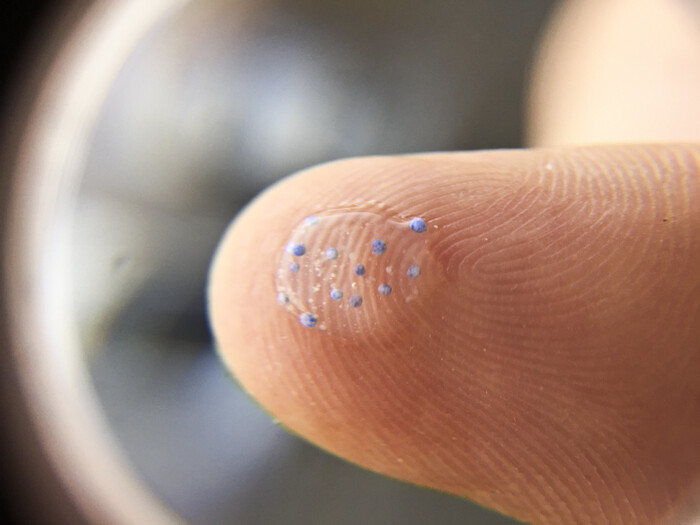For the first time, a study has detected the presence of microplastics in the ovarian follicular fluids of women undergoing Medically Assisted Reproduction. The research 'First evidence of microplastics in human ovarian follicular fluid: an emerging threat to female fertility', visible in preprint on the medxriv platform, sees as leader of the research group Luigi Montano, UroAndrologist Asl Salerno and past president of the Italian Society of Human Reproduction , in collaboration with the University of Salerno, Federico II of Naples, University of Catania, Gentile dii Gragnano Research Center and Hera Center of Catania.
The study not only detected the presence of nano and microplastics (average concentration of 2191 particles per milliliter) but also the size below 10 microns (average diameter of 4.48 microns), highlighting a correlation between the concentration of microplastics and some parameters linked to ovarian function. This last aspect, "in light of the negative effects on the female reproductive system well documented in the experimental field in the animal world, worries us quite a bit - comments Montano - These same substances, in fact, not only have a direct damaging effect on ovarian function through different mechanisms, primarily oxidative stress, but they also act as a Trojan horse for other notoriously toxic substances, such as heavy metals, phthalates, bisphenols, dioxins, polychlorinated biphenyls and according to recent studies, also a vehicle for viruses, bacteria and protozoa. substances with dust-like dimensions, which penetrate deeply into our organism and which are introduced into the organism with the water we drink, the food we eat, the air we breathe and also through the skin with cosmetics for example". The presence of microplastics had already been identified, again for the first time, by the group led by Montano in urine and semen and published respectively in the international journals Toxics in January 2023 and Science of The Total Environment in July 2023.
"In conclusion, this discovery represents confirmation of how plastic contamination should be considered an emergency to be addressed immediately and that the discovery of microplastics in the follicular fluid which is in direct contact with the female gametes represents in itself a significant threat to the integrity of the our genetic heritage that is transmitted to future generations", say the authors of the study.
The theme will be at the center of the 7th National Congress of the Italian Society of Human Reproduction, in Bari from 11 to 13 April. But the spotlight of the experts will also be focused on other issues, such as the postponement of the entry into force of the Lea for assisted reproduction postponed to 1 January 2025: "A vulnerability for couples who intend to undertake this path", warn the specialists. In general, infertility in Italy "is a widespread problem that affects almost one couple in five of fertile age - declares Paola Piomboni, President of Siru - and the path of the infertile couple will be at the center of the debate and discussion at the congress".

